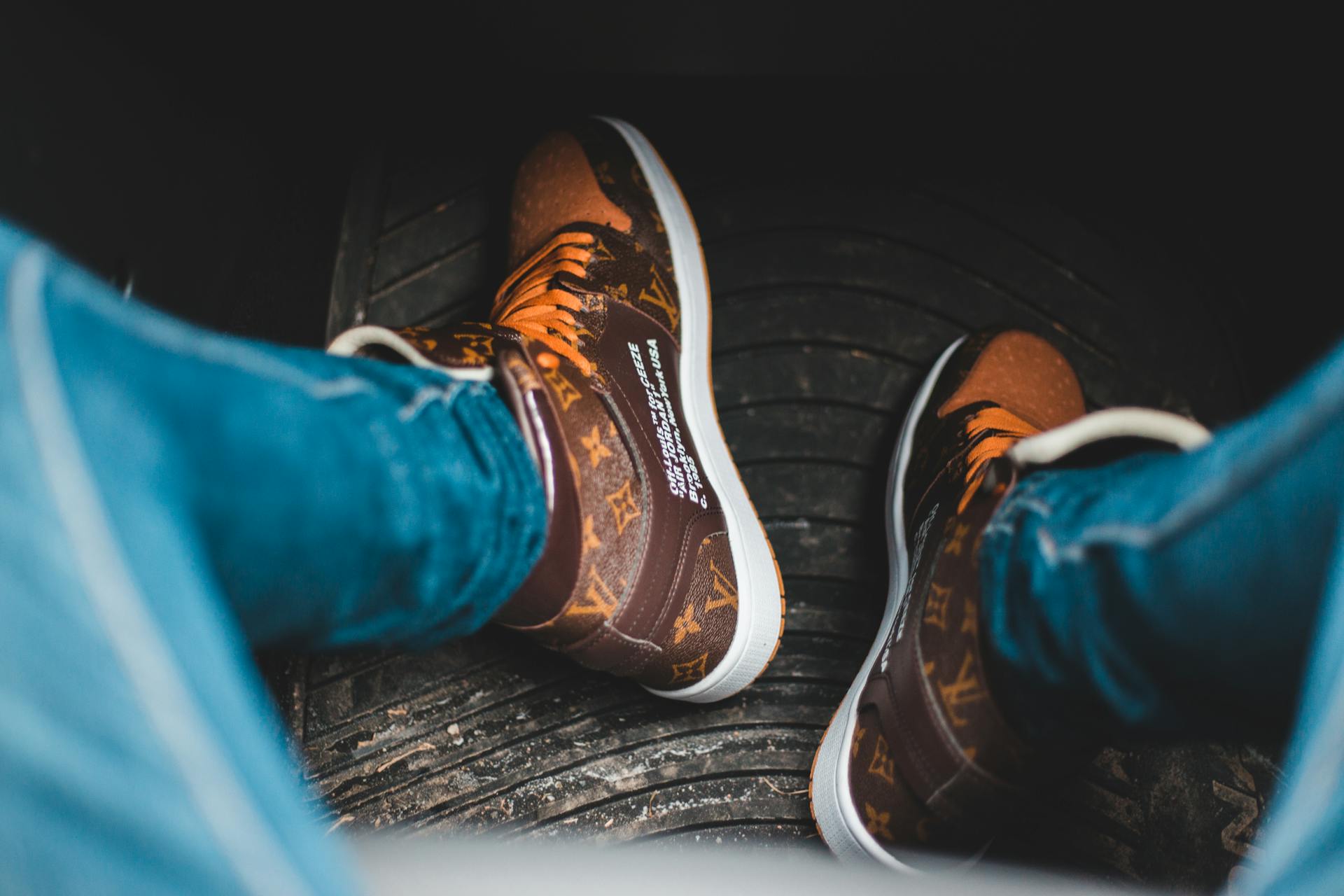
Sustainable and ethical fashion has been gaining popularity in recent years due to the increasing concerns about the impact of the fashion industry on the environment and society. Ethical fashion is a movement that aims to promote fair labor practices, minimize harm on the environment, and create a more sustainable future for fashion. The term "sustainable" refers to practices that can be maintained over time without causing damage or depletion of natural resources.
Ethical fashion is about being conscious of where your clothes come from, who made them, and how they were made. It involves considering factors such as workers' rights, animal welfare, and environmental impact when making purchasing decisions. Sustainable fashion also encourages consumers to buy fewer items that are made to last longer instead of constantly buying cheaply made garments that contribute to waste and pollution. By choosing sustainable and ethical fashion options, consumers can make a positive impact on both people and planet while still expressing their personal style.
Check this out: Regenerative Agriculture Sustainable Fashion
Discover the Meaning Behind Sustainable and Ethical Fashion
The term sustainable fashion refers to clothing, shoes, and accessories that are manufactured and marketed in a sustainable manner. This means that socio-economic aspects, such as workers' rights, environmental impact, and resource use, are taken into account at every stage of the product's life cycle - from design, raw material production, manufacturing, transport, storage, marketing, to final sale. The aim is to reduce waste and pollution while promoting fair trade practices.
One way to support sustainable fashion is through the reuse, repair or remake of garments rather than constantly buying new ones. Retail therapy might make us feel happy practically instantly when we buy new clothes or shoes we feel beautiful in - but this trend believing "buy fast discard faster" causes an enormous amount of waste. By supporting ethical and sustainable fashion outlets and shops instead of falling for the pretty marketing campaigns created by large corporations who often use false urgency and confuse retail therapy with real happiness; a net positive can be achieved in our sustainability department.
Having an ethical fashion closet lets us enjoy the deeply satisfying feeling of having a beautiful wardrobe while simultaneously reducing our carbon footprint on this planet. It's important to remember that cheaply made clothes take advantage of poorly paid workers and lead to an endless retail therapy cycle promoted by social media posts that also keeps us addicted to the dopamine drug (the so-called "feel-good hormone") that our body releases when we engage in pleasurable pursuits. However these good feelings fade quickly if not replaced with more shopping sprees - which again proves unsustainable.
What Do You Do Now To Implement Sustainable & Ethical Practices?

Implementing sustainable and ethical practices in fashion is no longer an option but a necessity. To start, we must understand the definitions set for these terms and hold ourselves to a high bar when making ethical decisions. On the flip side, we need to acknowledge that our actions can harm people, animals, and the environment. Therefore, taking consistent action towards our highest ideals and personal non-negotiables is of utmost importance.
One way to make positive actions is by shopping vegan or using plastic-free materials. We can also replace items mindfully and refer to a comprehensive list of sustainable brands. It's important to note that progress takes time, so applaud continual learning and self-examination in this honest process. We should also call out brands that don't align with our values while joyfully sustaining those who do.
Implementing sustainable and ethical practices includes grace towards oneself and others. Canceling brands or individuals who don't meet our standards isn't always necessary; rather, it's about taking steps in the right direction consistently. The time factor is real, but small changes add up over time towards a more sustainable future. In summary, implementing sustainable and ethical practices isn't an easy feat, but it's a necessary one for the betterment of ourselves, others, and the planet.
You might like: Worst Fast Fashion Brands
Connecting Sustainable and Ethical Fashion: Why It Matters

Sustainable fashion holds the key to protecting our social, economic, and environmental systems. However, achieving this mission requires individual behavior upheld simultaneously with widespread policy. The symbiotic relationship between ethical and sustainable fashion is evident when examining the treatment of garment workers. Workers exemplify the disingenuous nature of trendy environmental movements persisting unfair treatment.
Choosing companies that treat workers fairly is crucial in reducing the negative impact a single clothing item's footprint indelibly molds. This means ensuring individuals have purchase power over their clothes by selecting brands that prioritize living wage payments throughout sewing processes. Ethical fashion entails using earth-friendly materials while also protecting vulnerable populations. The needed companies emphasize the importance of reaching environmental justice while contributing to human wellness.
In conclusion, it is essential to connect sustainable and ethical fashion because they both affect critical areas of our lives – from human rights to environmental protection. The fashion industry functions in a way that impacts everything from individual worker rights to global patterns of consumption and waste creation. By choosing companies that prioritize sustainability and ethics, we can all contribute to creating a more just world for ourselves and future generations.
Readers also liked: Environmental Sustainability
Discover the world of sustainable fashion: What is it?
Sustainable fashion is a long term approach to design, manufacturing and consumption that creates good while avoiding harm to our environment and the communities affected by the fashion industry. Strictly speaking sustainability means maintaining ecological balance and preserving natural resources for future generations.
In fashion, this commonly extended idea takes into account social impact, ethical practices and economic systems. Sustainable production reduces waste, minimizes damage to the environment, supports local communities and promotes fair trade. These are key principles that drive sustainable fashion.
The world of sustainable fashion is an exciting one for those who want to make a positive impact on the planet while still enjoying style and creativity. Join us on this journey to explore how we can create a more mindful wardrobe without compromising our love for fashion!
Discover the Meaning of Ethical Fashion and Sustainability
Ethical fashion refers to the practices of brands' behavior that do not cause any harmful or detrimental actions towards people, animals, or the environment. It includes fair labor practices, animal welfare, and eco-friendly production processes. A bit generally speaking ethics apply to any industry or aspect of life. On the other hand, sustainability applies to fashion when products are made with a long-term focus on reducing waste and preserving natural resources. It involves using sustainable materials, minimizing waste and pollution, and creating a circular economy that reduces consumption and waste.
1. Ethics — are about values and choices
Ethics are about values and choices. When it comes to sustainable and ethical fashion, this means making personal code decisions that align with universal ideas of what is right and wrong ethics. Fashion brands must make business decisions that do not harm people, animals, or the environment. This requires a nuanced understanding of the supply chain back to raw materials and sew facilities, as well as using ethically sound materials like jute, organic cotton, modal, and vegan materials.
Finally, ethics applies to every aspect of the fashion system. The cost of fast-fashion brand requires environmental and labor corners to be cut in order to buy excessively and produce 953 million items of finished goods per year. The fashion industry's refusal to pay future orders during the COVID-19 shutdown left workers below the poverty line without any income. Sustainable and ethical fashion demands support for black and indigenous designers who practice ethical practices throughout their entire supply chains.
2. Sustainability — is about the continuance of abundant and healthy life for humans, animals, plants, and the earth’s systems now, and into the future
Sustainability is a great definition of what we should be aiming for when it comes to ethical and sustainable fashion. It's not just about making clothes that are eco-friendly or have a low carbon footprint, but it's also about creating thriving, healthy, diverse and resilient communities that can sustain themselves into the future. Sustainability recognizes that environmental health, social equity and economic vitality are all interconnected elements of a larger systems approach to fashion and the environment.
When we talk about sustainable and ethical fashion, we're not just talking about minimizing waste or using organic cotton. We're talking about creating a system where the environment and society can continue to thrive while also supporting an industry that employs millions of people around the world. By adopting sustainable practices in our fashion choices, we can help build a better future for ourselves, our communities and our planet.
How Good On You helps you build a more sustainable wardrobe

Are you tired of feeling guilty about the clothes you wear? Want to make ethics and sustainability part of your fashion choices? Look no further than Good On You. They've developed a simple ethical rating system that rates brands on key areas like people, planet, and animals.
Their ratings system is easy to use and understand. Simply type in one of your favourite brands and their website will rate it for you. The system takes into account everything from production processes head to the label impacts the environment. By providing users with easy-to-understand information, Good On You makes it easy to feel good about what you wear. So next time you're shopping for clothes, check out their rate page and start building a more sustainable wardrobe today!
Discovering the Importance of Ethical Fashion: A Closer Look
Ethical fashion focuses on two major things; people and animals alike. It emphasizes on fair living wages, healthy working conditions, and animal welfare. Sustainable fashion, on the other hand, deals with the impact of our fashion choices on the environment. Both ethical and sustainable fashion go hand in hand, making sure we are doing our part to address the catastrophic environmental challenges we face today.
Climate change is a significant threat to our planet, affecting everything from freshwater sources to agricultural production. By supporting ethical fashion, we can ensure that we are taking care of both people and the planet. It just makes sense to choose clothing made with environmentally friendly materials like organic cotton or recycled polyester while also supporting companies that prioritize fair labor practices and animal welfare. The dimensions of ethical fashion are many, but ultimately it's about making better choices for ourselves and for future generations.
How To Create a Sustainable & Ethical Wardrobe?
If you're looking to create a sustainable wardrobe, start by taking stock of what you already own. Make a list organized by category, such as tops and bottoms, and see where you can pare down. Then, look at the wear purchase make cycle - consider investing in higher-quality items that will last longer and be versatile enough to wear for years to come. And don't forget about the life cycle of each piece - choose natural materials that are biodegradable or can be recycled.
To transform fashion into an ethical industry, it's critical to incorporate practices outlined by experts like Sarah Peel, educator at Citizenne Style and eco-hub manager. Consider creating a holistic menu of clothing options that take into account ethical sourcing, manufacturing processes, and environmental impact. And don't overwhelm yourself with trying to buy everything all at once - start small with one single item and watch the ripple effect on your overall consumption habits.
As global citizens, we have the power to make a difference in the world through our choices as consumers. By adopting mindful practices for building a sustainable wardrobe, we can play our part in transforming fashion into a more ethical industry for all involved.
1. Shopping, caring, and wearing sustainable and ethical fashion
One important thing to keep in mind when shopping for sustainable and ethical fashion is to be an outfit repeater. Instead of constantly buying new trendy high fashion pieces, try to invest in classic pieces that can be worn multiple times. This means doing some strategic planning and making sure the items you've chosen will serve you well for a longer period of time. Search online for minimalist fashion brands that offer a limited number of items, including shoes, that fit within a minimalist wardrobe.
Another way to shop sustainably is by purchasing locally made items from independent, female-owned makers. Not only does this make your carbon footprint smaller, but it also keeps money circulating within your community. Proactively support black, brown, indigenous, Asian, and Latinx communities by choosing brands with similar aesthetics and ethical labor practices. Look for brands that have third-party assessments or sustainability reports available on their website to evaluate their corporate responsibility and materials standards.
Finally, caring for your clothes properly can also contribute to sustainable fashion practices. Repair or tailor clothes that have been worn threadbare instead of throwing them away. Find a cobbler or shoe-maker who can fix any issues with your shoes rather than buying new ones all the time. Connect with laundry techniques like qigong-like mindfulness to avoid shrinking or color-fading stains from ruining your clothes. Choose eco-friendly detergents and avoid polyester dryer sheets by substituting with essential oils or wool dryer balls instead.
In order to truly embrace sustainable and ethical fashion practices, it's important to make conscious decisions about where you shop and what you wear. By adopting these 3 ways - shopping strategically, purchasing locally made items, and caring for your clothes properly - you can become a fashion feminist while empowering fempreneurs who are creating real change in the industry. These actions help directly protect both physical health through non-toxic processes as well as dismantle systemic racism through anti-racism stands and affirmative policies. Plus, it's easy math - divide the cost of an item by how many times you'll wear it (called cost-per-wear) to become a slow fashionista with a magic budget formula.
Ethical brand ratings. There’s an app for that.
Discovering ethical brands just got easier with the help of an app. With ethical brand ratings, you can easily find out which companies are sustainable and socially responsible. The app allows you to search for your favourites and measure their ethical rating, giving you more insight into the products you buy. It’s an easy way to make a positive impact on the environment and society while looking fashionable.
The Definition of Fast Fashion You Need to Know

The fashion industry has always been known for its fast-paced nature, but the term "fast fashion" takes it to a whole new level. Fast fashion refers to the production of inexpensive low-quality clothing accessories that imitate styles seen on luxury brands' runways at seasonal fashion shows. These items are made with synthetic materials and are churned out at break-neck speed by sweatshop labor fast fashion brands. They arrive in stock and are essentially created to be worn for 1-2 seasons before being discarded or replaced with a new batch of items from the next sale cycle. This means that fast fashion brands release anywhere between 52-104 seasons per year, which creates a constant demand for cheap clothing at full price.
Frequently Asked Questions
How can we make clothing more sustainable?
One way to make clothing more sustainable is to choose natural and organic materials, like cotton, linen, hemp or wool. Additionally, reducing waste through recycling and upcycling old clothes can also help minimize the environmental impact of the fashion industry.
What is sustainableðical fashion?
Sustainable and ethical fashion refers to clothing that is made using environmentally-friendly and socially responsible practices, including the use of sustainable materials, fair labor practices, and reducing waste. It aims to minimize the negative impact of fashion on people and the planet.
What are ethical fashion trends?
Ethical fashion trends are clothing and accessories made with sustainable materials, under fair labor conditions and with minimal impact on the environment. They promote ethical practices in the fashion industry such as recycling, upcycling, and reducing waste.
What is sustainable fashion?
Sustainable fashion is the production of clothing, shoes, and accessories in a way that minimizes negative environmental impact and promotes fair labor practices. It aims to create a circular economy by reducing waste and extending the life of products.
Is fashion eco-friendly?
Fashion is not inherently eco-friendly, as the industry is known for its high levels of pollution, waste, and unethical labor practices. However, some brands are making efforts to adopt sustainable and ethical practices in their production processes.
Featured Images: pexels.com


